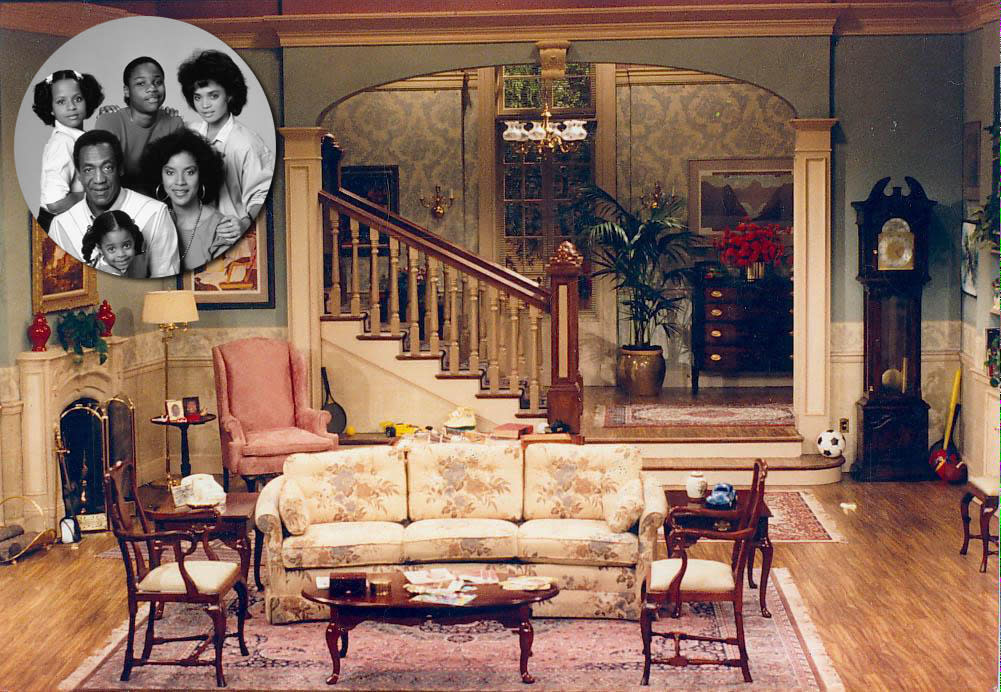
Introduction
When The Cosby Show premiered on NBC in 1984, it didn’t just become another popular sitcom—it revolutionized television. Aimed at showcasing a loving, successful African American family, it broke stereotypes and offered a refreshing change from the typical portrayal of Black families on TV at the time. In an era where Black characters were often depicted as struggling, marginalized, or limited to side roles, The Cosby Show offered a narrative that was both aspirational and deeply human.
Starring Bill Cosby as Dr. Heathcliff Huxtable and Phylicia Rashad as his wife Clair, The Cosby Show quickly became a cultural phenomenon. It didn’t just entertain; it also educated, challenged social norms, and sparked important conversations about race, success, and family life in America.
In this article, we’ll explore how The Cosby Show managed to break barriers, change perceptions, and leave an indelible mark on American television.
Breaking Racial Barriers on TV
At the time The Cosby Show aired, the portrayal of African American families in sitcoms was limited and often negative. Black characters were typically portrayed as poor, struggling, or in roles that reinforced racial stereotypes. Shows like Good Times and The Jeffersons focused on families dealing with economic hardship or navigating a society still rife with racial prejudice. The Cosby Show, however, presented a different narrative.
The Huxtables were a middle-class family living in a beautiful Brooklyn brownstone. Dr. Huxtable was a successful OB-GYN, while Clair, his wife, was a lawyer. The couple had five children—each with distinct personalities and dreams—but the show didn’t focus on their race. Instead, it depicted the everyday life and love of a family that viewers could relate to, regardless of their background. This was unprecedented for a primetime show in the 1980s.
The Huxtables weren’t struggling against the system, nor were they defined by their skin color. They were successful, loving, and smart. This depiction was groundbreaking. The Cosby Show showed that Black families were just as capable of success and happiness as any other. It sent a message that resonated deeply with African American audiences, who had often been marginalized or misrepresented in mainstream media.
Cultural Impact and Influence on Other TV Shows
The success of The Cosby Show also opened the door for other shows that followed in its footsteps. It was a game-changer not just for Black representation, but for family sitcoms as a whole. It redefined the genre, and its influence can be seen in later series like Family Matters, The Fresh Prince of Bel-Air, and Hangin’ with Mr. Cooper. These shows carried forward the idea of portraying Black families as successful, humorous, and relatable.
But beyond its immediate influence, The Cosby Show also set a new standard for what family sitcoms could achieve. Shows like The Wonder Years, Full House, and Growing Pains followed suit in showcasing families from diverse backgrounds and often incorporated deeper, more socially aware storylines. The success of The Cosby Show proved that an audience was ready for a more inclusive representation of family life on television.
The Show’s Lasting Legacy
Even though the show ended in 1992, The Cosby Show continues to be an enduring symbol of positive Black representation in the media. The Huxtables became role models for millions of viewers, and their impact on pop culture remains undeniable. Bill Cosby, who not only starred in the show but also served as its creator and producer, became a trailblazer for Black actors and creatives in Hollywood.
Beyond its cultural and social impact, the show had an immense financial success. It became one of the highest-rated shows of the 1980s and early 1990s, and its syndication continues to bring in millions in revenue for NBC.
But The Cosby Show wasn’t just about its success in the ratings. It was about how it challenged norms, shifted perceptions, and paved the way for greater diversity and inclusivity in the entertainment industry. It set a new precedent for what Black families could look like on television, and for that, its legacy will always be celebrated.
Conclusion
The Cosby Show wasn’t just a sitcom—it was a movement. It shattered stereotypes, brought to light the beauty and complexity of African American family life, and helped to redefine the landscape of television. Its groundbreaking approach to representation and family dynamics continues to inspire and influence shows today. As we look back on its legacy, we’re reminded that The Cosby Show was more than just entertainment; it was a cultural landmark that forever changed how television portrays families, success, and race in America.
